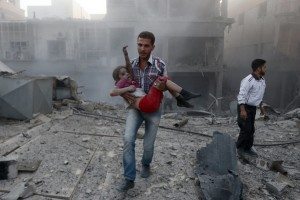Who is eligible to be considered as a Refugee?
This program was created  specifically for persons showing desperate need. There are two classes of persons who may qualify as refugees for Canada’s refugee and humanitarian resettlement program.
specifically for persons showing desperate need. There are two classes of persons who may qualify as refugees for Canada’s refugee and humanitarian resettlement program.
- A Convention refugee is any person who by reason of a well-founded fear of persecution because of race, religion, nationality, membership in a particular social group or political opinion
- is outside the country of his or her nationality and is unable or, by reason of that fear, unwilling to avail himself or herself of the protection of that country; or
- does not have a country of nationality, is outside the country of his or her former habitual residence and is unable or, by reason of that fear, unwilling to return to that country.
Convention Refugee Abroad is any person who:
- is a Convention refugee;
- is outside Canada;
- is seeking resettlement in Canada;
- does not have a prospect of another durable solution, within a reasonable period of time, that is:
- cannot return to his or her country of nationality or habitual residence;
- cannot integrate in the country of refuge or the country of first asylum; and
- does not have another offer of resettlement from a country other than Canada.
- will be privately sponsored or assisted by the government or has adequate financial resources to support himself or herself and any dependants.
- A member of the Country of Asylum Class is a person:
- who is outside his or her country of citizenship or habitual residence;
- who has been, and continues to be, seriously and personally affected by civil war or armed conflict or who has suffered massive violations of human rights;
- for whom there is no possibility of finding an adequate solution to his or her situation within a reasonable period of time; and
- who will be privately sponsored or who has adequate financial resources to support himself or herself and any dependants.
An officer at a Canadian visa office makes the final decision on whether someone meets one of these definitions and is, therefore, eligible for resettlement. The eligibility decision is normally based on an interview with the applicant, supporting documentation submitted by the applicant and sponsoring group and additional information available to the officer (such as country condition updates).
To be accepted for resettlement in Canada, they must also pass medical, security and admissibility checks. In addition, refugees will be assessed on their ability to establish successfully in Canada. In making this assessment, the visa officer will consider whether the refugee has relatives or a sponsor in Canada, the ability to speak or learn to speak English or French, the potential for employment and resourcefulness. When a family unit is applying, the settlement potential of all family members is assessed as a single determination. Refugees deemed by the visa officer to be in urgent need of protection or in vulnerable circumstances are not assessed on their ability to establish.
